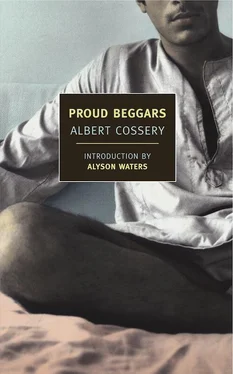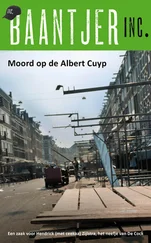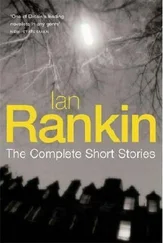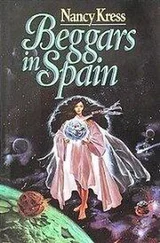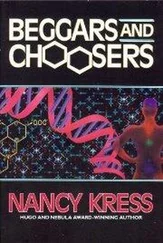In the shop’s darkness, he indulged in his favorite grimaces, attentive to the slightest sign of the revival taking place in his companion’s organism. He was already looking forward to being able to talk with him soon. But Gohar still remained silent; only a faint panting indicated that he was slowly returning to life.
After having left the house where he’d just strangled the young prostitute, Gohar had wandered through the streets in search of Yeghen. His obsession with the drug had the effect of attenuating the feeling of his act for a while. He remembered it like a tragic error whose importance was lost in the void. What was the importance of one crime among all the other crimes perpetrated each day under the most diverse forms: wars, massacres, repressions? He certainly wasn’t incapable of pity. The memory of his victim had wrung his heart all during his desperate course through the city streets, but it was as if he were thinking of a regrettable incident to which he had been only the impotent, horrified witness. In all conscience he had never wanted or premeditated this reprehensible crime. He was powerless to reconcile his innate horror of violence with the atrocious evidence of the facts. How then to explain the crime? Gohar refused to believe that fate wanted to bring him back to the bosom of a monstrous, criminal world that he held in contempt. He wouldn’t admit belief in an ineluctable destiny from which no escape was possible. Was it his destiny to be a respectable professor teaching the foul lies with which a privileged class oppressed an entire people? Was it betraying destiny to flee this imposture? Nothing was less certain. No doubt he was a marked man, the product of an anguished civilization that prospered through murder. But he thought he had escaped anguish and recovered peace and tranquillity in this plot of still-unviolated land where the nobility of a people inclined to joy blossomed. Had he succeeded in his escape only to bring with him terror and murder stuck to his skin? Was his adventure about to end in failure? No, that could not be.
All the same, he knew he would have to reckon with man’s justice. The police would hardly get entangled in abstract analysis; for them destiny meant the executioner’s blade. They conceived of fate only as an oppressive will, intent solely on keeping the slaves in their servitude. Gohar knew they would nose about everywhere, deploying colossal energy with the single aim of catching him. Not that the murder of a prostitute was an odious, inhuman act in their eyes, but it disturbed their tyrannical order. The concept that each transgression should receive its punishment was one of those hypocritical lies serving as a bulwark to a rotten, dying society. What a road he’d traveled in so few years! That rigid morality that he had taught, that he had believed in as in an inalienable richness, had revealed itself to be the most baneful conspiracy hatched against an entire people. It was merely an instrument of domination destined to hold the poor in awe. Perhaps, after all, this crime was only the expiation of his old lies, his blind complicity with infernal powers. If that were so, he had broken once and for all, shattered forever the bonds that still tied him to that detestable world. From now on he belonged to the mass of hunted men, thrown back to the borders of horror but relentlessly animated by a healthy confidence in life.
No justice would be able to bring young Arnaba back to life, but he, Gohar, was alive. The police would have to combat a living enemy, the most terrible kind of person alive: an optimist. They would have a hard time cornering him. He would fight with all the force of his inertia to preserve this new life acquired at the price of superhuman effort.
Bountiful magic of the drug! Gohar moved in his chair, opened his eyes, and smiled in the shadows.
Yeghen understood from this smile that he could finally speak.
“Well, Master, what’s new?”
“Quiet, my son, I had a memorable day.”
“How so?”
Yeghen exulted and rubbed his hands, grimacing more than ever. Gohar’s tone told him he was going to hear an extraordinary tale.
Gohar recounted his morning’s misadventure. He talked about his dead neighbor, the polluted water that had flooded his room, and the mourners’ strident cries.
“I’ve been in the street since noon. It’s been terrible.”
“That story is so funny,” Yeghen guffawed, “that it’s worth any sacrifice. Those adventures only happen to you, Master. Really, I’m jealous!”
“I looked everywhere for you,” said Gohar. “Where were you?”
Yeghen looked mournful, and said, as if he were telling a secret, “I went to visit my mother.”
There was something related to his mother that Gohar tried to remember. What was it? Oh, yes. Now he remembered.
“I heard that she died. I hope it isn’t true. If it is, my dear Yeghen, please accept my sincere condolences.”
“You, I can tell, Master,” laughed Yeghen. “It’s not true. She’s still alive, so alive that she managed to make me fed up with her moralizing. All I want is to pick up a little money. What do you think?”
“I must admit that it’s a splendid idea. I wish you lots of luck.”
“Really,” said Yeghen, overjoyed, “I was sure that you would approve. Besides, she’s a surprising person.”
“Who, your mother?”
“Yes, sometimes she says things that take my breath away. However, I’m convinced she doesn’t use hashish. Do you know what she told me one day?”
“No, but I would be happy to learn.”
“I’ll repeat her words. She said to me, ‘You’re now big enough to handle your affairs with God all by yourself.’ It’s distressing, isn’t it?”
“I don’t exactly understand,” said Gohar.
“She no longer wants to serve as an intermediary. Can you see me dealing with God all alone? I’ll never manage it.”
“What are you talking about? Since when have you been in touch with God?”
“Personally, I have never been. My mother took care of everything. There is a tacit accord between us. But now it’s finished. I have to manage it all alone. So I got the idea to hustle a little money, supposedly for her burial. She at least owes me that.”
“I see that your reasoning is impeccable. All the same … ”
Gohar sat openmouthed. The marvelous effect of the hashish was carrying him to a state of euphoria where everything took on extraordinary dimensions, where nothing seemed suspect or impossible. Slouched in his chair, his hands resting on the handle of the cane that he kept between his legs, Gohar meditated on the peculiar relations that Yeghen maintained with God. He distinctly saw God talking at length with Yeghen, discussing various confidential affairs with the air of an affable, distinguished man. The two interlocutors seemed to have known each other for a long time; they were trading strong words without getting angry or raising their voices. But what was truly sensational about this vision was that God was wearing modern clothes and didn’t have a beard.
A brief laugh shook Gohar.
The barbershop was situated next to the Mirror Café, bordering a vacant lot invaded by rubbish and puddles of urine. At night it served as a haunt for the regular crowd of little beggars and cigarette-butt scavengers who came there to sleep, piled up like beasts in a den. Each morning the infuriated barber had to chase them away with kicks and cruel threats. He should have put a door on his shack, but he could not afford to. Gohar had found this spot one night when he was looking for peace and quiet, and, since then, he often parked himself there to savor ideal serenity. This barber’s chair was truly made for meditation.
“Master,” said Yeghen, “I want to tell you a secret.”
Читать дальше
